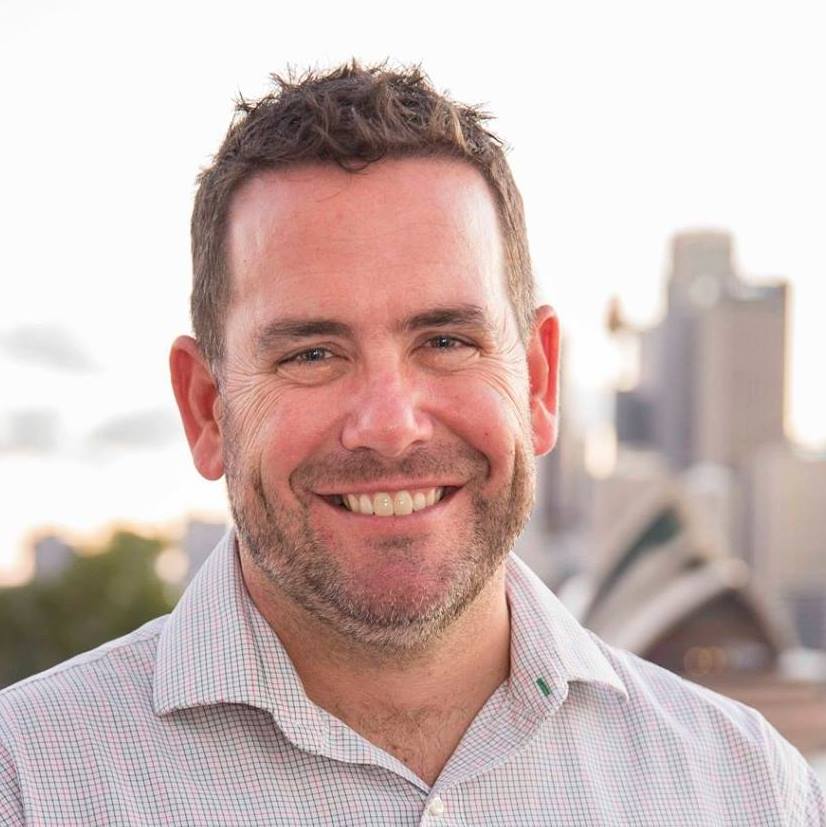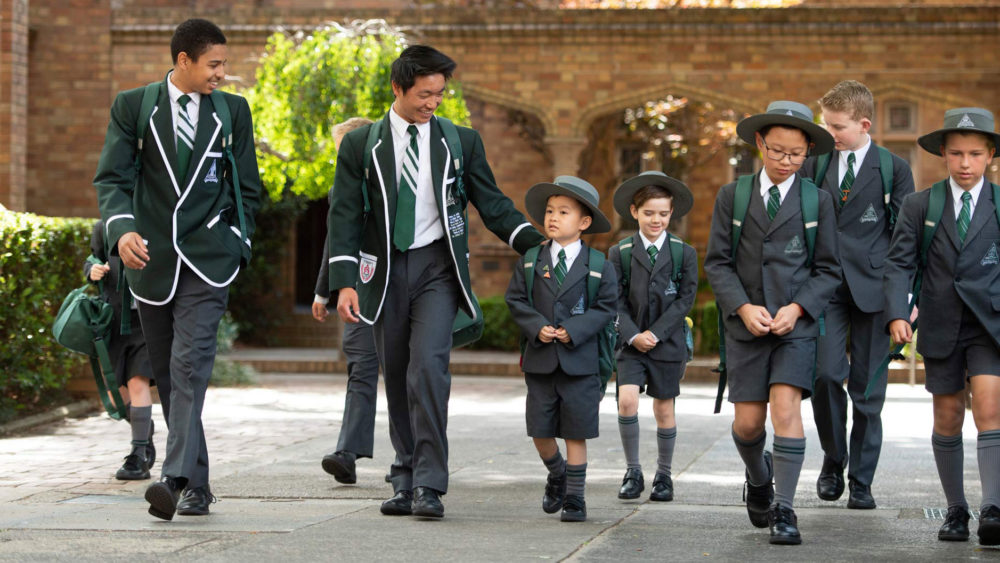Principal challenges students to chase commitment, not freedom
Valedictory speech focuses on what school leavers should give their life to
A great deal of wisdom is being dispensed across the country as Year 12 students pose for their graduation photos and contemplate life beyond school. Here we republish the valedictory address by Tim Bowden, principal of Trinity Grammar School in Sydney. Bowden draws on a recent book by David Brooks, The Second Mountain, which argues that the good life is to be found not in freedom and autonomy but in commitment to a spouse, community, vocation and philosophy or worldview.
Graduations, whether from school or university, are among the few clear rites of passage that endure in our society. There is a clear point of transition that takes place – even if it is a little blurred by exam scheduling. The reality is that this is your last week of classes as Trinity students. You have had your last chapel, your last quad assembly, your last lunchtime. The rhythm of your life will no longer be dictated by the rhythm of school, with terms, and bells, and uniform, and bells, and timetable and bells. Freedom is upon you – well, nearly upon you.
A common tradition at graduation events is a speech, dispensing wisdom. There are lots of these online – JK Rowling, Steve Jobs, Will Ferrell. Just Google graduation speeches and you can disappear down a rabbit hole – although best to wait until after the exams.
The reality is that most of these speeches hit up themes that we have been ingesting from our culture. Dr Seuss probably summarised it best in his book Oh, the places you’ll go! It starts:
Congratulations!
Today is your day.
You’re off to Great Places!
You’re off and away!
You have brains in your head.
You have feet in your shoes.
You can steer yourself
any direction you choose.
You’re on your own. And you know what you know.
And YOU are the guy who’ll decide where to go.
I am drawing from a recent book by David Brooks, The Second Mountain. He notes that at these points of graduation, our messages are really and profoundly unhelpful. “Freedom! You are free. The purpose of life is to be free. Freedom leads to happiness.”
The trouble is, our problem at this point of history is not lack of freedom. We have more freedom than virtually any generation in human history.
So we give you the message of possibility. “Your future is limitless. You can do anything you set your mind to. Dream big. Take risks. Anything is possible.” Again, when you haven’t got a clear sense of direction, it doesn’t help to be told that the sky is the limit – that just increases the pressure.
If you don’t make it big, it is clearly your own fault.
We then tell you all about authenticity. “Just be yourself. Be true to you. You are amazing – so be that guy.” Again, this doesn’t really help because that internal source of authority is still taking shape. What does it mean to be true to me?
When you haven’t got a clear sense of direction, it doesn’t help to be told that the sky is the limit – that just increases the pressure.
And we tell you about autonomy. “It’s up to you to find your way, to determine right and wrong, to make your choices and live with the consequences.” With this final burden in place, we cut you adrift, pushing you out into the sea, drifting with the wind and waves. Free.

Tim Bowden
Today, in my final words to our graduating class, I want to suggest that there is a better way to be. Instead of chasing freedom, go for commitment.
Brooks argues that commitment to a spouse, to a community, to a vocation, and to a philosophy or worldview – this is where the good life is to be found.
A spouse. Not in the cascade of thousands of momentary soulless images that flash across the screen in pornography, but in the deep commitment to one other, in good times and in bad, for richer for poorer, in sickness and in health, as long as you both shall live.
A community. Not in the rootless and shallow connections and networks built on clicks and likes and a subtle undercurrent of envy, but in the bonds that form over time through shared experiences both trivial and momentous, belonging – deeply belonging – in a way that only forms over time and presence.
A vocation. Dedicating oneself not to a mercenary pursuit of wealth, nor immersing oneself in a stupor of trivial banality, but understanding one’s work – paid or unpaid – as a calling. Something with meaning and purpose, something that contributes to the world and makes a difference to the people whom God has made. We need to know that what we do matters.
And, finally, a philosophy or worldview. The big questions of life need to be answered, although we can muffle their voices and distract ourselves with busyness, until such point that a crisis confronts us and strips us back to raw reality. What is life all about? Why am I here? Who am I? What happens next?
In each of these areas, commitment provides us with a better way to be. Instead of aiming for happiness, aim for meaning. Instead of independence, interdependence. Instead of prizing autonomy, prioritise relationships. Instead of buying and selling, we have giving and receiving. Instead of choices and options, think in terms of promises and commitments.
At the end of your school days, it is entirely understandable that the grass is greener out there. The allure of freedom and individualism is strong, and it is right for you to go out and explore. There is nothing wrong with freedom and possibilities and authenticity and autonomy. But the vision that claims ‘This is the good life’, over-promises, and under-delivers.
Instead of aiming for happiness, aim for meaning. Instead of independence, interdependence.
It is important to recognise that you have tasted the committed life. During your time at the school you have belonged to something bigger than yourselves, and you have carried the obligations and expectations that come with that belonging.
You have built friendships through shared experiences – both large and small. You are surrounded by people whose lives are marked by commitment, not freedom.
Your school experience has been made possible by the commitment of those around you.
The challenge for you is to work out how, who, and what, to be committed to.
Your family, whose commitment to you is one of the defining elements of their lives. Their commitment to you has been seen from your conception until now. They have put aside their own interests and opportunities, they have foregone other ways of using their hard-earned money, they have supported and encouraged and witnessed and wept.
Perhaps today, more than any other, their identity has been found and formed through that commitment. It is how they think of themselves: I am Ethan’s mum. I am Nick’s dad.
Their commitment to you is one of the most precious and prized elements that defines them, and that they could not imagine themselves without. They are living examples of the fact that commitment is better than freedom.
Men of Trinity, I wonder whether you will join me in publicly acknowledging and thanking your parents for their commitment.
The Lord Jesus can be trusted. Commit yourselves to him.
Your teachers, too, are defined by their commitment. Teaching at Trinity is a vocation – a calling. It is a calling that has led them to go above and beyond in your education. Their commitment to seeing you grow and flourish and thrive in mind, body and spirit stems from their conviction that education matters, and that you matter.
Men of Trinity, I wonder whether you will join with me in publicly thanking and acknowledging the staff at Trinity, whose commitment to your education has made your journey what it is, to this point and in the years to come.
I have suggested to you that commitment is better than freedom. The challenge for you is to work out how, who, and what, to be committed to.
My hope and prayer is that, as you move on from Trinity, and as you find those people, and places and tasks to which you will commit, you will remember also the Lord Jesus.
His words are a firm foundation on which we can build the good life. He provides us with a mission and purpose. His death and resurrection provide us with a hope that endures and that will not disappoint. The apostle Paul, nearing the end of his days and reflecting on the path that he had taken, wrote “I am not ashamed, because I know whom I have believed and I am convinced that he is able to guard what I have entrusted to him.”
The Lord Jesus can be trusted. Commit yourselves to him.
Detur Gloria Soli Deo.


